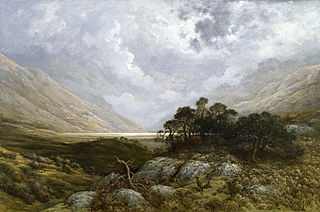
|
A Two-Day International Conference, Paris, Paris-Panthéon-Assas University, salle des Conseils
26-27 Jun 2025 Paris (France)
|
Keynote speakers
We are delighted to announce that our keynote speakers will be Prof. Annie Tindley (Newcastle University), Prof. Richard Oram (University of Stirling), and Andy Wightman (former MSP for Lothian).
Prof. Annie Tindley
(Newcastle University)
"Feudal power and the politics of Clearance: the value(s) of land and the limits of landed power in Scotland, c. 1800-the present"
Abstract: Although land enclosure and reorganisation by landowners was a long standing and British-wide process, the Clearances in nineteenth century Scotland became one of the most (in)famous illustrations of the power of landowners in Europe. Anti-Clearance protesters and campaigners asked how it was possible that a small group of individuals could have such extensive legal powers concentrated into their hands and pointed to the deleterious impact that power had on a whole culture and people in the Scottish Gàidhealtachd. The acrimonious debate exposes the ways in which expectations of landed power – including increasingly outmoded ideas of clanship and newer definitions of paternalism – were increasingly in tension with new economic opportunities and realities. This paper will explore the nature – legal and political – of landed power in this controversial context, including the limits of that power imposed by volatile economic markets and the growing power of political and public opinion.
Bio: Annie Tindley is Professor of British and Irish Rural History at Newcastle University. She writes on landed elites and land management, use and its reform in the British, Irish and imperial contexts.
Andy Wightman
(former MSP for Lothian)
"Scot Land and the Environment"
Abstract: This paper will explore the evolving relationship between land governance and the environment from early commons regimes regulating access to valuable resources to modern conflicts between conservation and development and the rise of the “green laird”, natural capital and carbon markets. The evolution of environmental policy has necessitated an accommodation with the established framework of property rights. The paper will highlight key milestones in this evolution ands conclude by challenging the place of property law within the legal discipline of private law and the necessity of developing a new relationship between private and public interests in the anthropocene.
Bio: Andy Wightman was born in Dundee and studied forestry at Aberdeen University. He worked as a ghillie, environmental scientist, and an environmental campaigner before becoming a self-employed writer and researcher in 1993. He is the author of several books, including the best-selling The Poor Had No Lawyers: Who Owns Scotland and How They Got It.
Prof. Richard Oram
(University of Stirling)
"Historicising Environment and Environmental Change in 21st-century Scotland"
Abstract: Given its centrality to most discourse surrounding Scottish culture(s), identities and nationhood, it is unsurprising that Scotland’s land and environment are contested and debated fields of conflict, literally and figuratively. Both are places of sharp oppositions, beautiful yet degraded, containing ‘wilderness’ yet epitomising ‘cultural landscape’, ecologically impoverished yet containing unique ecosystems, habitats and species, ‘timeless’ yet a classic example of that syndrome of continuously shifting baselines. It is equally unsurprising that these contested places are the focus of diametrically opposed views on the course ahead, themselves representing a spectrum of opinion from maintenance of the status quo to radical rewilding. Almost the only thing that unites these perspectives is the ahistoricity of the arguments upon which their cases are founded and their reliance on factoid and myth rather than empirical – and especially historical - evidence.
In this paper, I will explore in outline three historical themes that form central strands in current environmental debates in Scotland. The first of these is the form and fate of Scotland’s woodland, looking through the lens of discourse surrounding the mythical ‘Great Wood of Caledon’ from its role in the construction of national identity to its deployment as a justification for the ‘rewilding’ of mainly upland areas. False equation of the mythical ‘Great Wood’ with the ecological category Caledonian Forest has been deployed by both greenwashing and rewilding investors to validate their actions as the righting of a historical wrong and the remediation of a recent environmental loss that impoverishes Scotland. Second, I shall examine the wilderness concept and the contradiction of the counter-theme of Scotland’s rural emptiness as a recent cultural construction manufactured historically through Clearance. Here, the historical and archaeological evidence for externally organised regimes of intensive social and economic management of environmental resources from the Early Historic era onwards shall be considered. The final, unifying theme will use the range of climate proxy data available to us to explore the environmental and anthropogenic variables that have produced our current landscape character and ecological structures and argue that the through the application of empirical, historical and scientific evidence we can both better understand how they have evolved and how best to ensure their future resilience in a time of accelerating environmental change.
Bio: MA (Hons) in Mediaeval History with Archaeology, University of St Andrews (1983) and PhD in Mediaeval History, University of St Andrews (1988). Pursued a non-academic career in commercial property underwriting 1987-91 before setting up a freelance historical research business (Retrospect). Joined the University of Stirling in September 2002 as Lecturer in Medieval and Environmental History, having previously been an Honorary Lecturer in History at the University of Aberdeen. Promoted to Senior Lecturer in 2005 and to Professor in 2007. A former Director of the Centre for Environmental History and Policy, in 2008 I was appointed a member of the Historic Environment Advisory Council for Scotland, providing advice to Scottish Ministers on aspects of policy and public engagement in the sector. In January 2015 I became Head of the School of Arts and Humanities and from 2016 Dean of the Faculty of Arts and Humanities. I stepped down as Dean on 1 October 2021 and resumed my role as Professor of Medieval and Environmental History.

